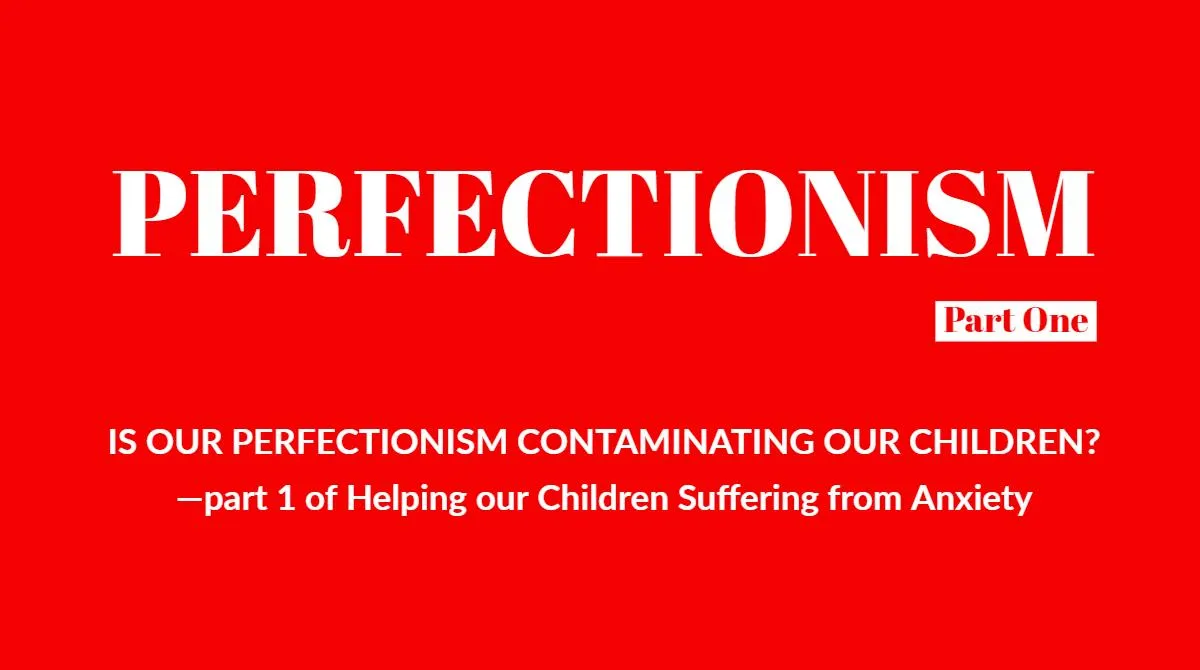The Social Communication Blog
By Linda Boverman

Is Out Perfectionsim Communication Our Children? (Helping our Children Suffering from Anxiety)
The answer is a resounding YES.
Perfectionism in anyone is risky for them and those around them. It tends to
promote stress, pressure, and expectation not based in reality. It often negatively
affects health and sleep.
In relationships, it tends to make us rigid and critical. It can cause us to compare
with others, which can make us feel less than or better than—and make others feel
the same way.
And even if we are not riddled with anxiety producing perfectionism,
our accommodating behavior can inadvertently make symptoms persist or worsen.
There are benefits from this desire to get things perfect. It helps us achieve and feel
competent and in control.
But is it worth it?
Researchers say NO. The significant losses far outweigh the minimal gains. And
concerning our children? Perfectionism often creates anxious parents, and anxious
parents often create anxious children.
You don’t want to do that. You love your children. So what do you do? The safest
thing to do is:
Change your mindset
Here are seven ways that can help you do that.
1. Teach the value of imperfection. The awareness that imperfection is perfection. Through our behavior we can help our children not just mimic words about the benefits of mistakes but also feel the truth of their benefit.
I’ve created an 80% rule for parents and children to help normalize our mistakes. I say if we are 80% – or less—on target, we are perfect. That leaves 20%+ for making mistakes. That means we can embrace them with acceptance and sometimes a smile.
You might even have a Mistake Fest at dinner where each family member shares a mistake of the day. The winner is the person who made the biggest mistake.
2. Say, “I’m sorry, I made a mistake”, often—knowing full well that it says nothing negative about you. This doesn’t mean saying, “I’m sorry your feelings were hurt” or “I’m sorry I yelled, but you weren’t listening”. These are not apologies.
3. Deeply value failure and making mistakes. Embrace them in yourself and your children. Share your mistakes and failures with your children. Talk about them in a way that shows you respect them and learn from them. Let your children know mistakes empower us—not diminish us
I have pointed out my mistakes so often to my granddaughter that she said, “Tutu, you make lots of mistakes.” I agreed with her, and we both laughed.
4. Sometimes hold back when you see your child making a mistake. Do this because it helps them succeed. You’re teaching them that making mistakes is a natural and unavoidable part of being human. It helps them learn how to pick themselves up and try again.
5. Imagine your parent pointing out your one B, giving your four A’s short shrift. How would that have made you feel? Possibly inadequate and not good enough. As if nothing you did was good enough, i.e. you were not good enough. You might have thought you never could please them. You might have felt stressed.
Let’s think about you and your child. You don’t want to push her away. You want to connect with her. You know that persistence and resilience as well as character qualities are what help your child succeed and experience happiness. Approaching the situation with this in mind helps us recognize that the process is more important than the result.
For example, in the previous scenario, you could comment on how proud you are of her and how proud you hope she feels. Let her bring up the “B”. If she does, you might learn how she feels about it. If she says she wishes she had done something differently, you may want to offer to help her create a plan.
6. Take a look at the pressure you put on yourself. The stress and anxiety you feel trying to measure up to your own expectations.
How about practicing being more self-accepting, knowing the lack of acceptance creates anxiety, stress and pressure—all of which negatively affects you and could negatively affect your child.
7. We often think if we show our vulnerability—i.e. being authentic with whom we are—our authority will vanish. Our children will lose respect for us. They will not listen.
But that is not the case. Our vulnerability, our acknowledgement that we make mistakes, and our acceptance of ourselves as wonderfully imperfect is a positive model for our children. It helps them do the same. It also promotes the connection that our children and we yearn for.
Lessening the pressure of perfectionism has helped me and those around me perform better and feel better. A wonderful side benefit is it leaves more room for exploration, learning, and curiosity.
Enjoy

Copyright 2023 . All rights reserved
lindaboverman@gmail.com
(213) 804-7750

